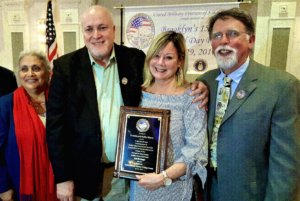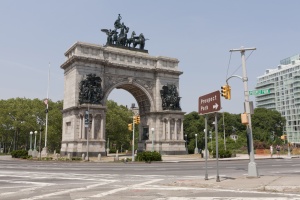When Marie Margadonna received her water bill in late autumn of 2011, she was shocked to see that her usual subtotal of around $80 had jumped to $300 for the previous three months.
As a senior citizen whose grown children are long since gone from her Bath Beach home of over 50 years, Margadonna was baffled and called the Department of Environmental Protection (DEP) to get a second meter reading in order to clear up the discrepancy. Instead of help, though, she says she was told that the records were indeed correct.
They said they dont do second readings. Theyre saying I used that water. What I want to know is where [it could have gone], said Margadonna, who maintained that her bills had never gone past $90 before, even in the summer. I called Honeywell to check it out and they said it was fine. I called the plumber, and that cost me money, and he said nothing was wrong with the pipes so no leak. I didnt know what to do anymore so thats why I went to [Councilmember Vincent] Gentile.
Gentile and fellow Councilmembers David Greenfield and Lew Fidler are three of several elected officials who have called on the DEP to conduct an investigation into the proliferation of supersized water bills and the accuracy of recently-installed automated meter readers (AMRs), which send meter-usage information wirelessly to computers in a city office.
Ever since the digital water meters were installed, weve received calls from constituents whose water bills suddenly skyrocketed for absolutely no reason, said Gentile. There needs to be some sort of recourse for these people to fight the bills they feel are unfounded. Taxpayers have a right to question these charges.
The complaints I have been hearing from residents and business owners regarding their water bills are shocking and need to be investigated immediately, agreed Greenfield, who called a press conference at City Hall late last month to highlight the issue. We need to be sure that this technology is reliable and that customers are not being overcharged. I urge the DEP to take these complaints seriously and look into this matter so that the public can be confident that the bills they receive are accurate.
There is no word on whether an investigation will take place, but according to DEP spokesperson and Director of Communications Farrell Sklerov, the meters are doing a good job and actually help to improve customer service.
The new wireless meter readers are providing accurate data. In fact, DEP has seen no significant change in the number of bill disputes since these transmitters started to be installed in 2009, wrote Sklerov in an email to this paper. In the last year alone, the devices have saved our customers an estimated $10 million since we initiated our program to proactively alert customers about potential leaks if we see spikes in their water use.
That doesnt reassure Boro Park resident Judith Svarac, though, who contacted Greenfields office in late January after what she describes as a year of unhelpful phone calls to the DEP.
I always had a water meter and Im the type of person to let them install something when they ask because I dont want to be a Johnny-come-lately, said Svarac, who typically spent about $200 per quarter-year on water before her first wireless-read bill in early 2011. My bill was astronomical over $3,000. They said [each quarter] would be around $600 now and the reading had been faulty, so now they are also charging me arrears.
They said the previous meter was faulty, but if that was the case, then why didnt they come and fix it, asked Svarac. Now the bill is $7,000. Every time I call the water board, they say thats the way its going to be.
According to Greenfield, many of the higher bills come despite residents being away on vacation, having children away at college, and marking the Sabbath day with no electricity turned on, so in order to restore public trust in these meters before more are installed and the problem is compounded for the city, I hope DEP officials hear our message today and act now.
 Generally Speaking: Bay Ridge resident named Brooklyn surrogate, Memorial Day Parade-ers honored
Generally Speaking: Bay Ridge resident named Brooklyn surrogate, Memorial Day Parade-ers honored  Captain America celebrates 75th birthday with statue in Prospect Park
Captain America celebrates 75th birthday with statue in Prospect Park